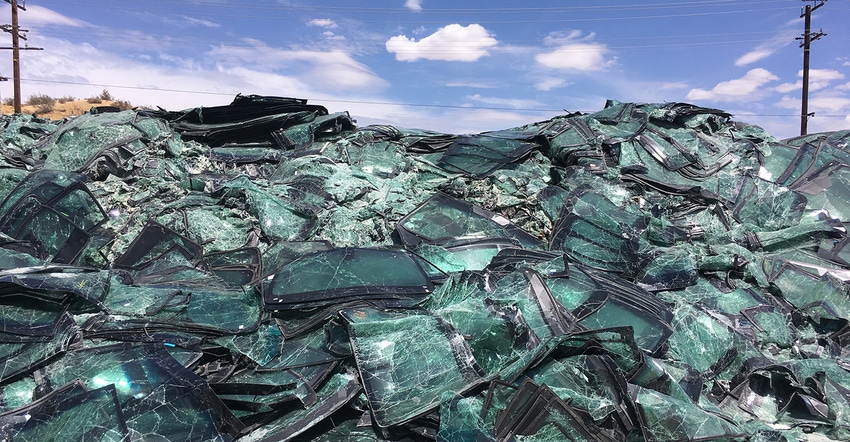Avient Reclaims PVB from Broken Windshields to Formulate New TPEs
Developed in 45 to 55 Shore A durometers, the new reSound R grades are suited for general-purpose applications in the consumer and automotive industries.
August 19, 2021

Avient announced today that it has added reclaimed polyvinyl butyral (PVB) from car windshields and laminated architectural glass to its portfolio of reSound R thermoplastics elastomers (TPEs). The result of a collaboration with Denmark-based Shark Solutions, a global leader in advanced sustainable PVB, Avient’s reSound R TPEs will contain 25% of post-consumer recycled PVB.
Seventy-five million car windshields are replaced each year, according to Avient. The inner layers of glass contain thousands of tons of PVB, which typically go to landfills. Instead, the outer glass is recycled and the PVB is reclaimed and reprocessed for various uses, including as an alternative raw material source for polymers. Avient said that its formulation expertise allows the supply of reprocessed, non-toxic PVB to be upcycled into sustainable TPEs with excellent properties.
Developed in 45 to 55 Shore A durometers, the new reSound R grades are suited for general-purpose applications in the consumer and automotive industries. The injection moldable TPEs can be overmolded to polypropylene (PP) and come in a natural grade that can be easily colored.
The reSound R grades with PCR content reportedly offer similar performance properties to traditional TPEs and are suitable for many durable consumer products and grips as well as vibration-damping automotive applications, including door mats and gloveboxes.
The reSound R TPEs are available globally. Data sheets and applications can be found on the Avient website.
About the Author(s)
You May Also Like


